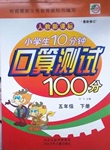题目内容
In time of serious accidents, ______ we know some basic things about first aid, we can save lives.
- A.whether
- B.until
- C.if
- D.unless
句意:发生严重事故时,我们要是知道一些急救基本知识的话,便可以拯救生命。A.“是否”;B.“直到”;C.“如果、假如”;D.“除非、如……不……”。此题学生易选B项,until表时间,而此处是条件假设,所以C项最佳。

 小学生10分钟口算测试100分系列答案
小学生10分钟口算测试100分系列答案Think back to this time last year. What was on your mind?
Most likely, you were thinking about finals or the holidays, although in this city I’ve noticed that thinking about the holiday is a fancy way of saying how much stuff will I get.
Now reflect on your thoughts for this holiday season. Most people are still thinking about the holidays, but I say that with a grain of salt. Everybody with a functioning brain and the ability to communicate knows that this holioday season comes with a pretty large price tag: the debt of all the hardships, both domestic and foreign, that we’ve faced over the past 12months.
Let’s face it: some of us will get everything we want over the holidays. But there are others whose parents have lost their jobs or who have lost jobs themselves because of the current economic situation. As much as we try to ignore it, there is still economic unrest in the blue and gold suburb.
In this situation, we have three options. One: We ignore the situation, like we seem to do for every bad thing that happens around us, because by God, it’s the American Way! Two: We recognize that our economy is shot, feel bad about it and spend our time wishing for the good old days. Three: We recognize that our economy is shot, but instead of moping, reflect on every good thing that we have going for us. Now, which option sounds best to you?
I spent a week this summer working in and around New York City with the city’s homeless population. Or so I thought. Although a lot of the people I served were in fact homeless, a significant number of them had a job or a home or both. The truth of the importance of this situation is that they and thousands of others across the country can’t afford even the most basic things of life, even while working two jobs. Yet no one that I met complained about their hardships. Instead, they took whatever I happened to give them(which was, more often than enough, not enough) and were genuinely grateful for what they had.
Wrap your heads around that statement for a second. These people worked their butts off to stay alive with minimal results, yet were overjoyed by a flimsy(脆弱的) paper plate with donated green beans on it. Although I am ashamed to admit it( both as a girthy figure and an affluent citizen), I have taken for granted most of my meals, let alone green beans, and I know for a fact that I am not alone.
64. 1.According to the passage when people think about holidays they care much for ____.
|
A.where to spend their holidays |
B.how to spend their holidays |
|
C.what they can get for their holidays |
D.who they should go to visit |
65. 2.When the author wrote the article, the economic situation in his country ____.
|
A.began to go bad. |
B.began to improve |
C.was still serious |
D.was favorable for middle class. |
66. 3.The author wrote the article mainly to advise people____.
|
A.to be thankful in time of hardship. |
B.to spend their holidays in a wise way |
|
C.to think little about their holidays |
D.to help the country to sail through the crisis |
67. 4.It can be inferred from the passage that the writer is most probably ______.
|
A.a homeless child |
B.an old professor |
C.a famous scientist |
D.a young student |